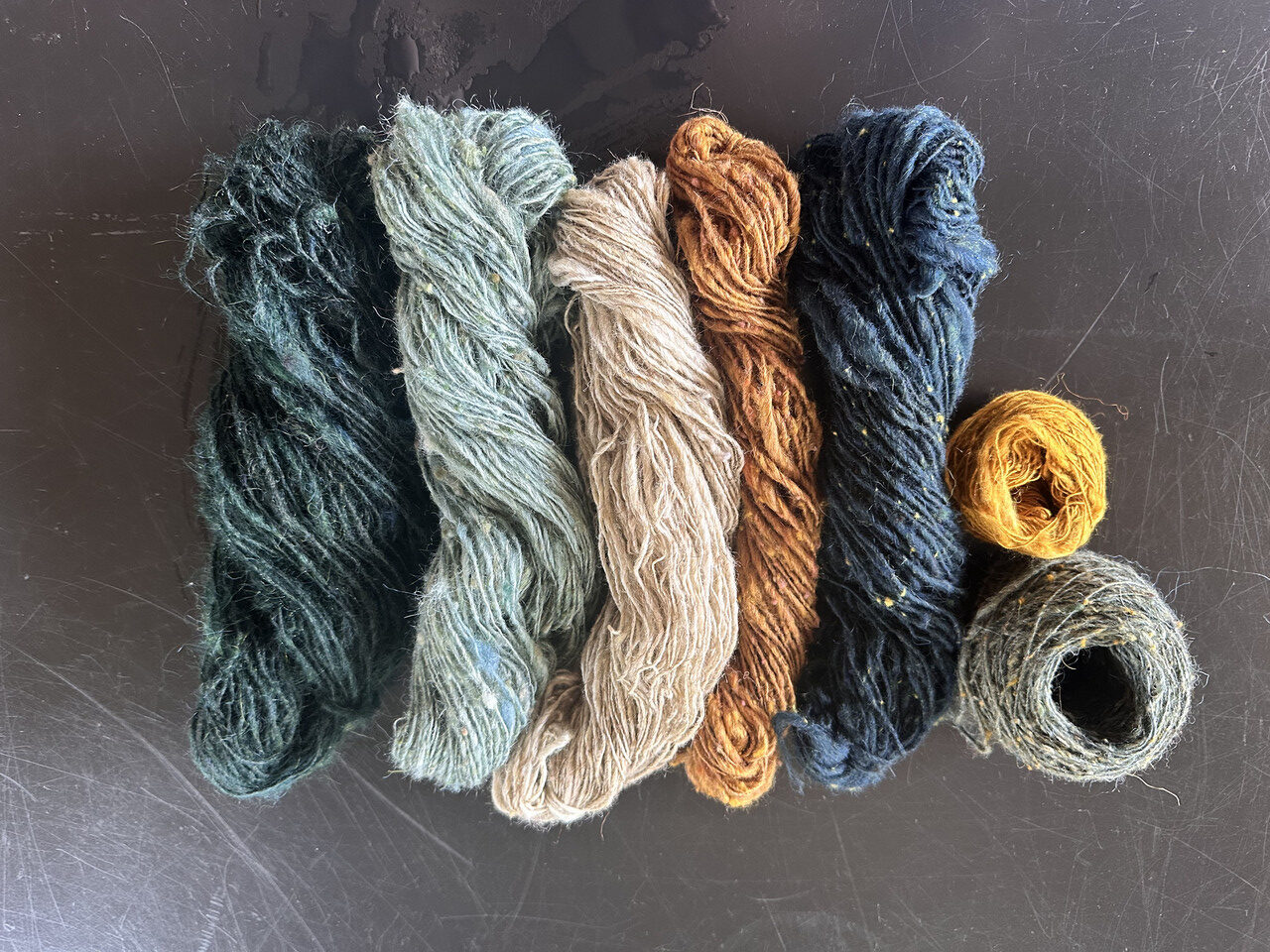
Description
Join instructor Julia Hames for an immersive fiber journey as we transform raw sheep fleece into beautiful yarn and felt. Throughout the workshop, you’ll explore the entire process of wool crafting, from fleece to finished fiber art.
You’ll begin by learning the wool cleaning process, working with unwashed fleece from local farms. Through skirting, separating, and scouring, you’ll gain firsthand experience, with the added bonus of naturally moisturized hands from the lanolin-rich wool! You’ll also explore various forms of raw fiber from different sheep breeds and other animals, like alpacas.
The workshop continues with a focus on color and preparation, where you’ll use natural dyes to create vibrant hues and process clean wool into roving using carders. You’ll then learn to spin the fibers into yarn using either drop spindles or spinning wheels, embracing the meditative rhythm of the craft.
Finally, you’ll bring your wool to life as fabric, exploring techniques like wet and needle felting, weaving, and knitting. Whether you’re new to fiber arts or looking to deepen your skills, this workshop promises to inspire and connect you to the rich tradition of wool processing.
About the Instructor
Julia Hames is a painter, papermaker, material researcher, and gardener, holding a BFA in painting from the Rhode Island School of Design with a concentration in nature, culture, and sustainability studies. Their practice revolves around a sensitivity to the natural world, experimenting with pigments, dyes, biomaterials, and fibers. They have led workshops on topics such as papermaking, eco-printing, silkworms, and pigment-making at places including the RISD Nature Lab, Sustainable Cape, the Truro Library, and at Studio Claudy Jongstra. Julia is a founding member of the Regenerative Earth Collective, a group on the RISD campus that started a community garden, and provides students with the opportunity for hands-on environmental engagement and education.
Learn More
www.juliahames.com
Materials List
You will need to bring:
Any preferred fiber arts equipment for knitting, crochet, felting, weaving, etc. when working with proceeded yarns
Provided by instructors:
Raw wool from local farms
Drop spindles
Spinning wheel
Carders
Soap
Bubble wrap
Mordant
Natural dyes
Pots and buckets